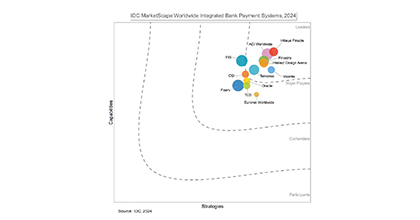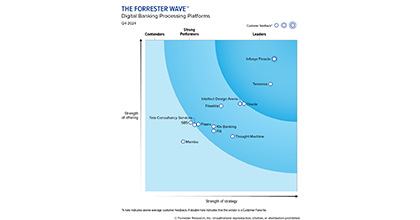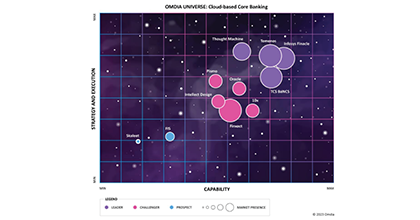The investment management landscape is at an inflection point, shaped by increasing market volatility, an explosion of real-time data, and shifting investor expectations. Global financial ecosystems are more interconnected and unpredictable, where decisions must be made in milliseconds and portfolios recalibrated at a moment’s notice. Yet, despite the availability of advanced technologies, much of today’s investment management still relies on labor-intensive processes. Investors spend significant time analyzing financial reports, monitoring macroeconomic indicators, and manually diversifying portfolios. Meanwhile, financial advisors are burdened with crafting bespoke strategies, conducting ongoing risk assessments, and ensuring regulatory compliance - all while striving to deliver personalized client experiences. These challenges expose the limitations of current practices that struggle to keep pace with the scale, speed, and complexity of modern markets.
In this environment, Agentic AI emerges as a game-changer. Unlike conventional AI, which focuses on automating specific tasks, Agentic AI embodies autonomous, goal-driven systems capable of managing complexity, learning continuously, and orchestrating entire decision-making workflows. This shift introduces unprecedented possibilities in investment management—enhancing operational efficiency, enabling hyper-personalization, and improving agility in response to market dynamics. This blog explores the transformative potential of Agentic AI in investment management. It examines how intelligent agents can redefine both investor and advisor roles by augmenting research, automating portfolio strategies, personalizing advice, and streamlining regulatory compliance.
Agentic AI is Set to Redefine Investment Management
Agentic AI is set to redefine investment management by introducing intelligent, autonomous systems that streamline operations and elevate decision-making. Unlike traditional approaches that depend heavily on manual research and static models, Agentic AI leverages autonomous, objective-driven agents to analyze data, assess risks, and identify investment opportunities in real time. These agents continuously learn and adapt, enhancing speed, accuracy, and responsiveness.
In portfolio management, Agentic AI enables greater personalization by dynamically aligning strategies with individual investor goals and market conditions. It can rebalance portfolios, simulate market scenarios, and coordinate actions across advisory, compliance, and analytics workflows through centralized management. Multi-agent orchestration ensures seamless collaboration, while human-in-the-loop mechanisms maintain oversight for critical decisions. The result is a more agile, scalable, and intelligent investment management model—one that balances automation with expert judgment to deliver better outcomes in an increasingly complex financial world.
Depiction of Real-World Applications of Agentic AI in Investment Management
Here are some real-world scenarios demonstrating how agentic AI can revolutionize investment management processes:
Scenario 1: How Agentic AI Helped a Cautious Investor on a Quest for Higher Returns
Edward Thornton, a cautious investor, was keen to achieve higher returns without exposing himself to unnecessary risk. With the help of his financial advisor, Charles, they designed a diversified investment strategy. This strategy focused on increasing equity exposure to amplify returns, expanding healthcare ETFs, diversifying with gold and silver, and hedging using long-term put options for stability. While this plan was promising, it also required constant monitoring and adjustments based on evolving market conditions, which posed a challenge given Edward’s limited time and Charles’s capacity to manage multiple clients.
This is where Agentic AI stepped in as a game-changer. Powered by machine learning and sophisticated algorithms, Agentic AI was able to monitor the markets in real-time and take autonomous decisions based on predefined objectives. With Edward’s growth target of 15% annually, the AI agent acted as a virtual assistant, automating key elements of the strategy while still allowing Edward to maintain final approval.
Here’s how it worked in practice:
- Simplified Explanations: The Explanation Agent simplified complex financial concepts, such as cash flow, into easy-to-understand examples. It helped Edward grasp the potential for superior returns and educated him on the benefits of regular portfolio monitoring and hedging, using simple language and without financial jargon.
- Portfolio Rebalancing: The Rebalancing Agent continuously adjusted Edward’s portfolio in line with the strategy created by Charles, ensuring optimal asset allocation based on market conditions and past performance.
- Automated Transactions: Once Edward approved changes, the Transaction Agent executed trades seamlessly through the distributor’s Order Management System (OMS), reducing manual effort and ensuring swift execution.
- Strategic Hedging: The Hedging Agent proactively implemented hedging strategies to protect the portfolio, adjusting the hedging as necessary to maintain optimal risk management.
- Market Opportunity Monitoring: The Opportunity Monitoring Agent scanned the market continuously for emerging opportunities. For instance, if an underperforming stock like a certain automobile company was impacting returns, it could recommend reallocating funds into a promising healthcare stock.
By leveraging Agentic AI, both Edward and Charles could focus on higher-level strategy and relationship building, while the AI ensured the portfolio remained dynamic, responsive, and aligned with Edward’s financial goals. This synergy of human expertise and machine efficiency empowered Charles to manage more clients, enhancing productivity, while ensuring Edward’s investments grew with minimal effort on his part.
Scenario 2: How Agentic AI Helped a Busy Business Woman Achieve 35% Portfolio Growth
Catherine Beaumont, a successful businesswoman, understood the importance of financial markets but struggled to manage her investments due to time constraints. Her advisor, Charles, recommended a strategy that aimed to amplify returns with momentum trading, options trading for additional alpha, portfolio diversification using gold and silver, and hedging overnight positions to optimize risk. However, Catherine needed a solution that required minimal intervention while still aimed to target up to 35% growth, recognizing the volatility inherent in such aggressive strategies.
Enter Agentic AI—a technology architecture comprising autonomous agents, integrated ML models, and orchestration systems to execute complex financial strategies and make informed decisions with minimal human input. Here's how it helped Catherine achieve her growth target:
- Simplified Explanations: Agentic AI translated complex options strategies and market trends into easy-to-understand language, enabling Catherine to make informed decisions without financial jargon. It acted as a virtual relationship manager, explaining potential risks and rewards clearly and proactively identifying opportunities that matched her risk appetite.
- Proactive Portfolio Hedging: Agentic AI anticipated market downturns and designed hedging strategies to protect the portfolio. It calculated the impact of market drops and used hedges to profit during rebounds. These profits were reinvested back into the portfolio, optimizing returns and ensuring continued growth.
- Speculative Transactions: Agentic AI executed momentum trades and speculative transactions based on Catherine’s risk profile. It used complex algorithms to predict market movements and made trades in stocks and options with real-time adjustments. After Catherine's approval, trades were executed automatically, based on her preferences.
- Market Opportunity Monitoring: The platform continuously scanned the market for new opportunities, adjusting the portfolio as needed. For instance, if an underperforming stock impacted the portfolio, Agentic AI recommended reallocating to a stronger asset.
By combining Charles's expertise with Agentic AI’s precision, Catherine met her 35% growth target without constant monitoring, freeing up both her time and Charles’s to assist more clients.
Scenario 3: From Salaried Investor to Smart Income Generator with Agentic AI
William Davenport, a dedicated professional, had built a solid GBP 1 million portfolio but sought more—better returns, enhanced income, and less hands-on management. He needed a strategy that leveraged his existing assets while fitting his busy lifestyle. His advisor, Charles, suggested the following:
- Reduce debt allocation by 7%, increasing exposure to gold and equities.
- Generate additional income using options strategies like covered calls and theta decay, with proper hedging.
- Hedge the portfolio selectively, based on market trends and risk profile.
Enter Agentic AI, which transformed William's investment approach. Powered by AI and machine learning, Agentic AI automated complex strategies, providing clear insights to help William achieve his financial goals.
Here's how Agentic AI made a difference:
- Demystifying Options: Agentic AI simplified complex options strategies, like covered calls and ratio spreads, breaking them down into easy-to-understand language. William gained confidence in making informed decisions, knowing potential risks and rewards. The AI acted as his virtual relationship manager (RM), always ready with clear explanations.
- Dynamic Options Trading: Agentic AI analyzed William’s portfolio and identified opportunities for options trading. For underperforming stocks, it executed sell calls, while for growth stocks, it applied spread strategies. The AI monitored positions daily and made adjustments based on market movements, maximizing returns.
- Strategic Hedging: Agentic AI anticipated market downturns, implementing hedging strategies to protect William’s portfolio. It optimized the cost of hedging, ensuring timely adjustments to safeguard assets.
- Portfolio Rebalancing: Continuously scanning the market, Agentic AI advised William on optimal asset allocation, shifting between equity and debt to enhance returns based on real-time conditions.
William’s portfolio evolved from a passive investment to an active income generator. He gained extra income through strategic options trading, protected his assets with smart hedging, and optimized his portfolio with dynamic rebalancing—all while maintaining his busy professional life.
Decoding the Benefits of Agentic AI in Investment Management
- Boosting Efficiency: Agentic AI automates complex workflows, streamlining processes tailored to each investor's needs, significantly reducing operational costs. By handling routine tasks, it frees financial advisors to focus on strategic activities, boosting overall productivity.
- Enhancing Decision-Making: Powered by data-driven insights, Agentic AI provides optimized operations and accurate revenue predictions, helping investors make well-informed decisions. Predictive analytics further enable the identification of profitable opportunities, as the system uses machine learning to forecast market trends and movements.
- Improving Customer Experience: With personalized, AI-driven interactions, including chatbots and virtual assistants, Agentic AI ensures responsive and tailored communication. Investors receive 24/7 support, enhancing satisfaction, trust, and overall engagement.
- Enabling Innovation: Agentic AI adapts quickly to changing market conditions, fostering innovation and enabling the implementation of dynamic investment strategies. Its advanced AI technologies offer a competitive edge over traditional automation methods.
- Lowering Entry Cost: Offering scalable automation, Agentic AI reduces the financial barriers typically associated with legacy systems and traditional machine learning, making sophisticated investment management tools accessible and cost-effective for a wider range of investors.
With regulatory bodies like the FCA and SEC evaluating AI governance frameworks, the deployment of Agentic AI must be aligned with emerging auditability and explainability standards.
To Conclude
Agentic AI signifies a paradigm shift, moving beyond task automation to augmented intelligent, autonomous decision-making. The ability to create specialized AI agents, capable of managing complex information and coordinating workflows, fundamentally reshapes organizational capabilities. This technology empowers organizations to achieve unprecedented levels of specialization and efficiency. The time to embrace Agentic AI is not tomorrow, but today. The window of opportunity to leverage this transformative technology is rapidly closing.























